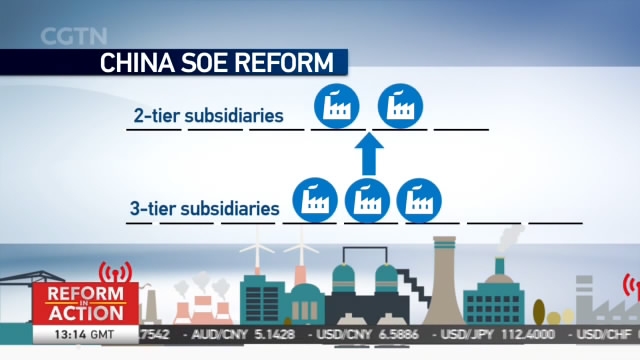
21:29, 12-Oct-2017
China SOE Reforms: China moves to make SOEs more independent

China's state - owned companies have great influence in the country's strategic sectors such as defense and energy. But the businesses are often criticized for low efficiency, outdated governance and a redundant workforce. The central government has made concrete efforts over the past five years to help the SOEs become more independent. Let's take a look.
The number of state - owned companies supervised by the central government has been reduced to 98 from 117 in the past five years. The restructuring has helped those companies save more than 10 billion yuan in operating costs. About 5,000 state - owned firms with no profitability were closed or sold. Their overall assets were worth 412 billion yuan. Corporate reforms have accelerated in the past five years. More than 90 percent of China's SOEs at the central and local levels have completed reforms. That means they will gradually become independent entities. The reforms also mean a profound change in SOE's rigid human resources and compensation system. The government is allowing SOEs to recruit outside managers and reward them based on the company's market performance.
The central government also has been pushing mixed - ownership reforms. Data shows that by the end of last year, about 70 percent of central state - owned companies' subsidiaries had private investors. The ratio was close to 50 at the local SOE level. In terms of corporate governance, the mixed - ownership reform has expanded from third - tier to second - tier subsidiaries.

SITEMAP
Copyright © 2018 CGTN. Beijing ICP prepared NO.16065310-3
Copyright © 2018 CGTN. Beijing ICP prepared NO.16065310-3